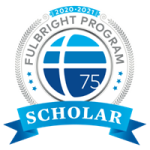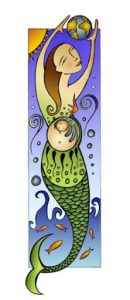Rocío Melissa Rivera – Division of Animal Sciences, University of Missouri
Bibliography CV ORCID Awards and Recognitions

Summary of Research Interests
The research condu cted in my laboratory aims at understanding the mechanisms whereby manipulations of mammalian gametes and embryos result in alterations of the epigenome.
cted in my laboratory aims at understanding the mechanisms whereby manipulations of mammalian gametes and embryos result in alterations of the epigenome.
A bit about me
I am originally from San Juan, Puerto Rico. I did my first two years of undergraduate studies in the Department of Animal Science at University of Puerto Rico – Mayagüez . I then transferred to Iowa State University where I completed B.S. degrees in Animal Science and Dairy Science. I did two years of undergraduate research in the laboratory of the late Dr. Stephen Ford where I also completed my M.S. I did the Ph.D. at the University of Florida under the mentorship of Dr. Pete Hansen and then went to the University of Pennsylvania to pursue postdoctoral training in the laboratories of Dr. Richard Schultz and Marisa Bartolomei.
In my spare time, I enjoy playing the viola at the local community symphony, love to cook, dance, walk/hike, and more recently started playing pickleball. I have two Chihuahuas, Cosita (4lbs 7 oz) and Icheb (7 lbs, 4 oz). Cosita is a certified therapy dog and we volunteer with the WAGS program at the MU Hospital and belong to the MU Vet School PALS club.
Research Training
I completed my Master’s thesis in December of 1995 at Iowa State University’s Department of Animal Science under the supervision of the late Dr. Steven P. Ford. The Master’s thesis title is “A comparison of preimplantation development of embryos from Chinese Meishan and Yorkshire pig breeds”. That work was set up to expand on the understanding of the mechanisms whereby the Meishan pig accomplishes increased litter size when compared to European pig breeds. Those data suggested that reduction in the number of trophectoderm cells during early embryogenesis, and not inner cell mass cells, may result in a reduced placental size and an increased litter size in prolific breeds such as the Meishan. One first-author publication and a scientific meeting abstract presentation resulted from that work.
My Ph.D. dissertation was completed in December of 2003 and was supervised by Dr. Peter J. Hansen in the Department of Animal Sciences at the University of Florida. The title of the Ph.D. dissertation is “Cellular, subcellular, and developmental responses of two-cell bovine embryos to a physiologically relevant heat shock”. The conclusions from that work were that physiologically-relevant heat shock disrupts development of two-cell embryos and this action is mediated, at least in part, by disruptions of the mitochondria and cytoskeleton. Furthermore, heat shock does not cause immediate block to development in the two-cell embryo but prevents development past the eight-cell stage. Five first-author publications and five scientific meeting abstract presentations resulted from that work.
My post-doctoral training (January 2004-July 2007) was conducted in the laboratories of Drs. Richard Schultz and Marisa Bartolomei of the Departments of Biology and Cell & Developmental Biology at the University of Pennsylvania, respectively. The studies were directed towards the understanding of how culture conditions affect the genomic imprinting pattern of mouse preimplantation embryos and post-implantation concepti. One first-author publication and two scientific meeting abstract presentations resulted from that work.

I am a FIRbee
Class of 2007
In the summer of 2007, I participated in a 6-weeks course in Reproduction at the Marine Biology Laboratory in Woods Hole Massachusetts, namely “Frontiers in Reproduction“.
I joined the Division of Animal Sciences at Mizzou in August of 2007 as an Assistant Professor. I was promoted to Associate Professor with Tenure in 2014 and to Professor in 2021.
In the fall of 2019, I did a sabbatical at the University of Murcia, Spain in the Department of Veterinary Physiology. My sabbatical was funded with a Senior Scholarship from Fulbright Spain. I was incorporated into the Master of Biology and Technology of Reproduction.
![]()

